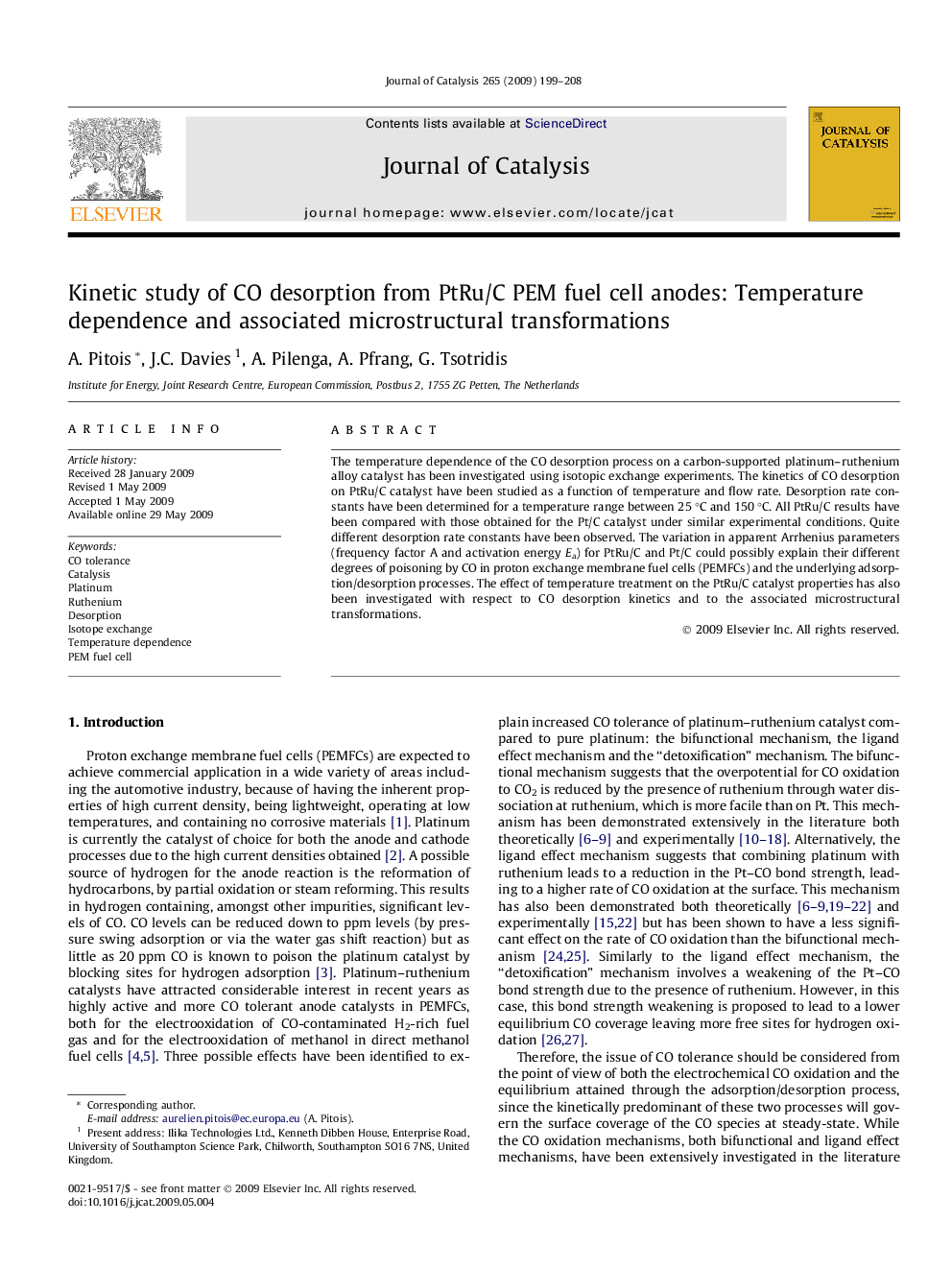| Article ID | Journal | Published Year | Pages | File Type |
|---|---|---|---|---|
| 62180 | Journal of Catalysis | 2009 | 10 Pages |
The temperature dependence of the CO desorption process on a carbon-supported platinum–ruthenium alloy catalyst has been investigated using isotopic exchange experiments. The kinetics of CO desorption on PtRu/C catalyst have been studied as a function of temperature and flow rate. Desorption rate constants have been determined for a temperature range between 25 °C and 150 °C. All PtRu/C results have been compared with those obtained for the Pt/C catalyst under similar experimental conditions. Quite different desorption rate constants have been observed. The variation in apparent Arrhenius parameters (frequency factor A and activation energy Ea) for PtRu/C and Pt/C could possibly explain their different degrees of poisoning by CO in proton exchange membrane fuel cells (PEMFCs) and the underlying adsorption/desorption processes. The effect of temperature treatment on the PtRu/C catalyst properties has also been investigated with respect to CO desorption kinetics and to the associated microstructural transformations.
Graphical abstractThe temperature-dependent CO desorption rates, obtained on a carbon-supported platinum–ruthenium alloy catalyst using isotopic exchange experiments, are high compared to previously published CO oxidation data. This suggests that the rate of CO desorption (and not CO electrooxidation) plays the most significant role in determining the equilibrium CO coverage at the fuel cell anode.Figure optionsDownload full-size imageDownload high-quality image (86 K)Download as PowerPoint slide
